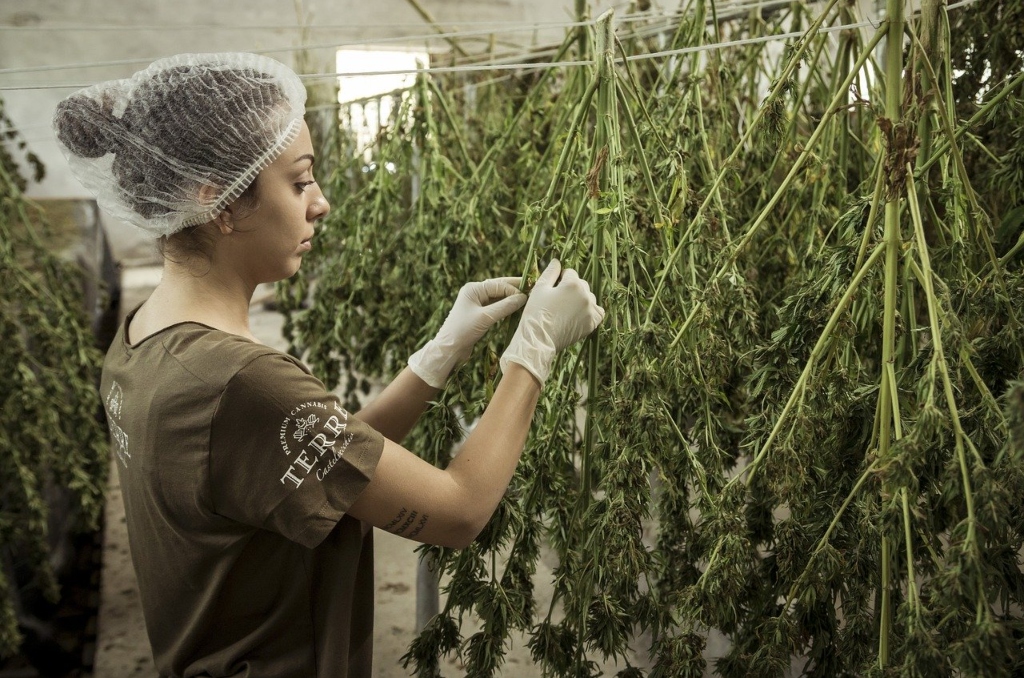Image by Terre Di Cannabis from Pixabay
All is fair in love and war, but not in the Florida State Legislature, apparently.
The Florida Supreme Court has asked two parties to come together again to discuss a lawsuit over the 2016 constitutional amendment legalizing medical marijuana. The lawsuit saw Tampa-based Florigrown challenging the 2017 vertical integration law, which regulates the state’s growing medical marijuana industry. Two lower courts have declared the law unconstitutional. The state appealed the rulings to the Supreme Court, and its challenge was heard before the bench May 6.
The vertical integration law is a concept that has to do with a requirement that says the companies must be able to handle all aspects of the business, including growing, processing and distributing products.
On Tuesday, June 14, the Supreme Court ordered both parties to another hearing to discuss whether the 2017 legislation is a “special” law that will benefit Florigrown, which is illegal. The Florida Constitution bars “special” laws that, generally, are intended to benefit specific entities. Florigrown, which has unsuccessfully sought a medical-marijuana license, contends that parts of the 2017 law improperly limited the firms that could take part in the industry.
Florigrown disagrees with the lawsuit, saying that was not the intent of the constitutional amendment and that a vertical integration system limits the number of companies that can take part in the industry. The alternative would be a system where firms could perform different aspects of the business, known as a “horizontal” structure.
A panel of the 1st District Court of Appeal in July upheld part of a temporary injunction issued by Leon County Circuit Judge Charles Dodson, who found that the 2017 law conflicted with the constitutional amendment. Dodson’s temporary injunction required state health officials to begin registering Florigrown and other medical-marijuana firms to do business, but the judge’s order was put on hold while the state appealed.
The Florigrown case is part of a massive amount of litigation in recent years about how the state has moved forward with the medical-marijuana industry, with much of the litigation centered on companies trying to get into the business. It is unclear when the Supreme Court might rule in the Florigrown case, with decisions typically taking months. The Florida House has joined the DeSantis administration in defending the law, with House General Counsel Daniel Bell taking part in Wednesday’s arguments.
A key part of the case, including during Wednesday’s arguments, has focused on the difference in the words “or” and “and” in determining whether the vertical-integration model is proper. “This (Supreme) Court has repeatedly held that the controlling question in evaluating whether a law is an unconstitutional special law is whether the class in the law is ‘closed,’ ” Florigrown attorneys wrote in their special law brief filed in June. “Here, the classes are so clearly closed, the Legislature might as well have named the licensees in the statute.”
The constitutional amendment defined medical-marijuana treatment centers as “an entity that acquires, cultivates, possesses, processes … transfers, transports, sells, distributes, dispenses, or administers marijuana, products containing marijuana, related supplies, or educational materials.” According to the 2017 law, however, “a licensed medical marijuana treatment center shall cultivate, process, transport and dispense marijuana for medical use”. This wording favors the vertically integrated system, as it establishes a need to perform all aspects of the business.
Melissa’s career in writing started more than 20 years ago. Today, she lives in South Florida with her husband and two boys.

